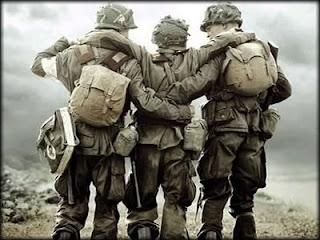*Professor, before you read this, I want you to know that writing about my personal experience was very careful and hard decision. thank you and have a great vacation!! :)
For me, suiciding is the last way to get over from bad situations. People often judge suiciders as trouble makers or socially isolated people. Well, I partly agree with that. However, I've got a different point of vie for the suiciders. I almost killed myself when I was 21, and that was last year. Before I talk about my experience, you should know that I'm telling you as one of suiciders. I tried to kill myself because I thought no one in this world could understand me. So, I didn't try to talk about my feelings until I jumped into the water. I thought everybody is happy, but me. I thought I'm the only one who's going through the hardships. But, shoehow I was rescued and that was the moment when I decided to change my thoughts toward world. So, my point is the selfishness in people's mind lead to suicide. The suiciders only think about themselves because they don't know how much people around themm actually care about THEM. They also don't care how much people around them are going to be sad when they actually committed suicide. They just think that is the best choice. Same for sam in the movie. He thinks everybody doesn't understand him while people were actually doing their best to understand him and help him to fit in the society. If I were Same, I would go to talk to dad when he suggested Sam to come over and talk to him. If he thought about his father's word more carefully, he wouldn't go that much far - bothering his family. I think because he was in army, chaing his thoughts might more difficult for him than any others. However, as I already said, changing your thought is very important when your head is full of suiciding. And the suiciders need to think about people around them once more before they kill themselves.
 These days media is very close to us, and we are able to know what's happening world out there at least within a day. There was time that many many Korean actresses committed suicide. I don't know why they did that so, but I think I can understand their feelings. They might regretted when they realized they are really about to die. Howeer, I remember netizens talked about them very bad ways. I saw some of them saying that they are really stupid and crazy. I watched news broad casting about them. They seemed like they pity the suiciders. But when I listened more carefully, some of the news broad casters sounded like the suiciders killed themselves just because they were going through lots of stress, and I could catch the actual meaning - "they committed suicide because they were not strong enough to handle their situations, and that's shame." I don't know if this is only my idea, but I could tell they were saying that way. Not really-feeling-sorry-for-them way. Before we make judgements, we should try to understand them. How much would they suffered from the stress that they chose the last, and worlst method to get over it? But in media, people don't seem like they care about it. People are just busy to judge the suiciders as socially isolated ones - and I think that's also stereotype. So, the media's role in this kind of situatioin is very important. Because media has the biggest part of the communication world, it needs to try to convince people to think about the suiciders more pity way. I think that's the least thing the media and we can do - to pity and understand them, not judging them.
These days media is very close to us, and we are able to know what's happening world out there at least within a day. There was time that many many Korean actresses committed suicide. I don't know why they did that so, but I think I can understand their feelings. They might regretted when they realized they are really about to die. Howeer, I remember netizens talked about them very bad ways. I saw some of them saying that they are really stupid and crazy. I watched news broad casting about them. They seemed like they pity the suiciders. But when I listened more carefully, some of the news broad casters sounded like the suiciders killed themselves just because they were going through lots of stress, and I could catch the actual meaning - "they committed suicide because they were not strong enough to handle their situations, and that's shame." I don't know if this is only my idea, but I could tell they were saying that way. Not really-feeling-sorry-for-them way. Before we make judgements, we should try to understand them. How much would they suffered from the stress that they chose the last, and worlst method to get over it? But in media, people don't seem like they care about it. People are just busy to judge the suiciders as socially isolated ones - and I think that's also stereotype. So, the media's role in this kind of situatioin is very important. Because media has the biggest part of the communication world, it needs to try to convince people to think about the suiciders more pity way. I think that's the least thing the media and we can do - to pity and understand them, not judging them.


